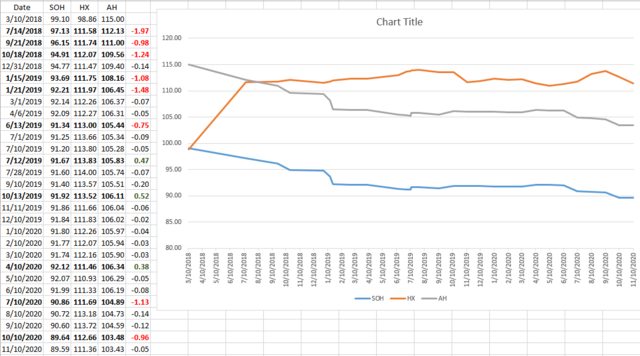Jollermd said:
I approach this question differently.
I *know* the variables that degrade batteries at a faster clip, albeit not the EXACT degradation rates.
So I minimize those things if I can, while operating the car in a manner that meets my use case and does not turn the car into a chore. As one example from my household:
Our LEAF is almost never used for more than 30 miles between charges at home and our model has a choice of charging to 80% SoC so my wife who is the main driver and user of the car has an ingrained habit of plugging in the car after every drive, and the car is set to charge to 80% SoC. I program the timer to finish charging at 6am in the summer, and to not delay charging in the winter.
You will have to find what works for you. Just be aware than high_SoC * duration * high_battery_temp is a recipe for an unhappy LEAF battery. If you own the LEAF and would like to optimize its value then see what you can do about mitigating those negative variables. Some people like the idea of gaming (or trying to game) the battery by asking questions like 'what is the most important variable' ? The most honest answer (perhaps outside of Nissan, and they are not talking) is that no one is sure but the combination of all three is bad. I think most owners who are willing to put some effort and thought into mitigation find it more practical to mitigate each variable somewhat rather than ignore one variable completely and go whole hog on another. I also suspect that approach is less effective.
This does not have to be rocket science or a lifetime hobby. Being reasonable and moderate goes a long way:
Avoid 100% SoC unless there is a good reason
Avoid letting the battery SoC sit at high SoC (over 90%) unless there is a good reason
Avoid letting the battery cook at high temps. This is the problem child with the TMS-less LEAF and the least amenable to owner intervention. If you live in a cool climate -- great. In the winter -- great. For summers I do four things:
1. I let the battery cool off for as long as practical before I charge.
2. I avoid DC fast charging if at all possible
3. I do not park in closed spaces like unventilated garages
4. I avoid parking on hot asphalt. At home the car is in the shade, and away from home we seek out shaded asphalt.
Good luck !

